Implicity, there should be something mysterious in every day.
D.T. SUZUKIEternity is the Absolute present.
More D.T. Suzuki Quotes
-





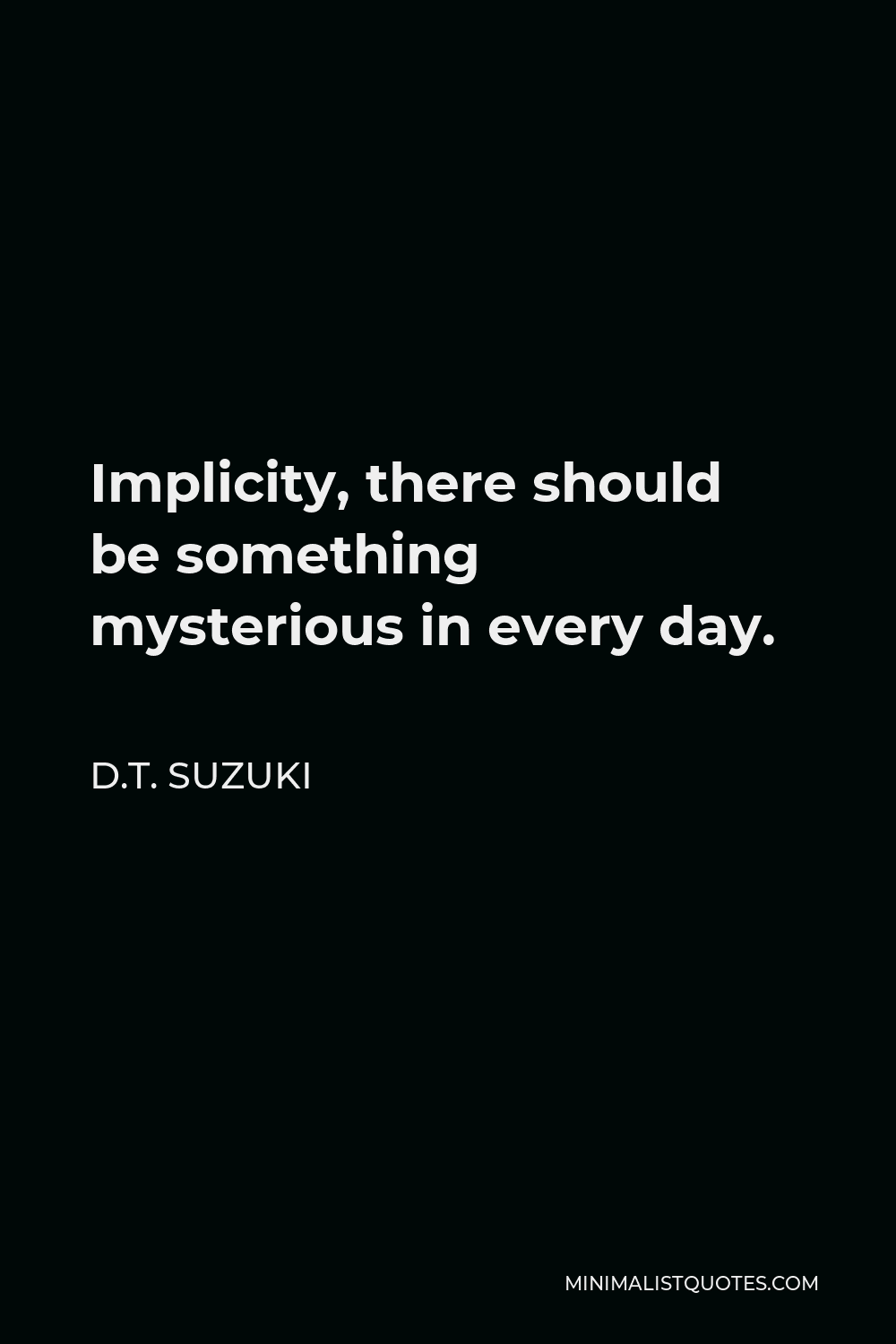
-






If you have attained something, this is the surest proof that you have gone astray. Therefore, not to have is to have, silence is thunder, ignorance is enlightenment.
D.T. SUZUKI -






Unless we agree to suffer we cannot be free from suffering.
D.T. SUZUKI -





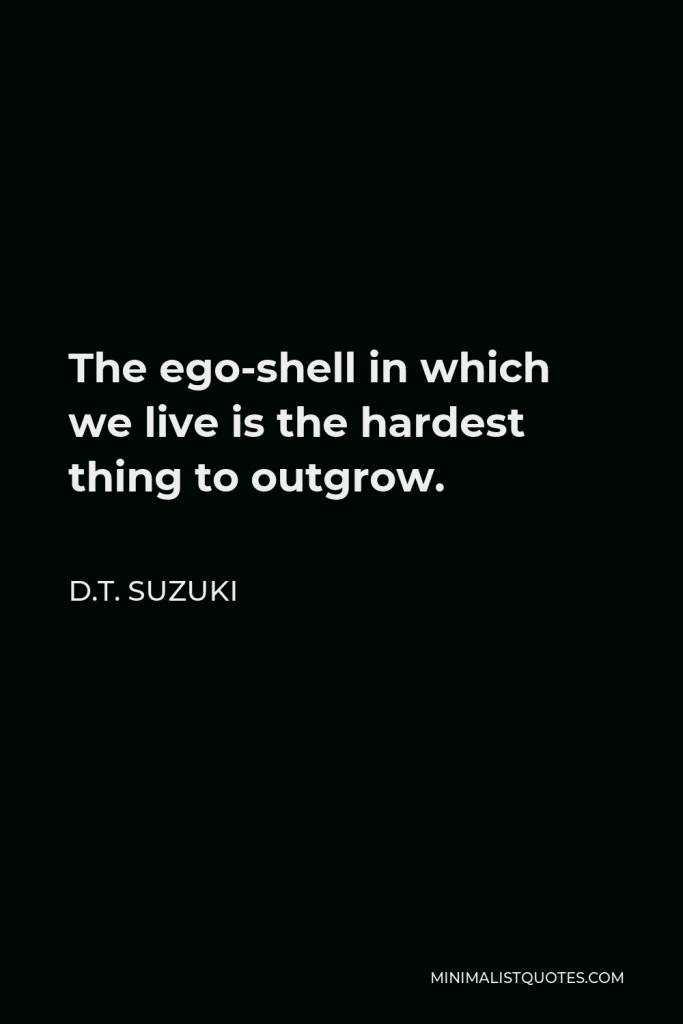

The ego-shell in which we live is the hardest thing to outgrow.
D.T. SUZUKI -





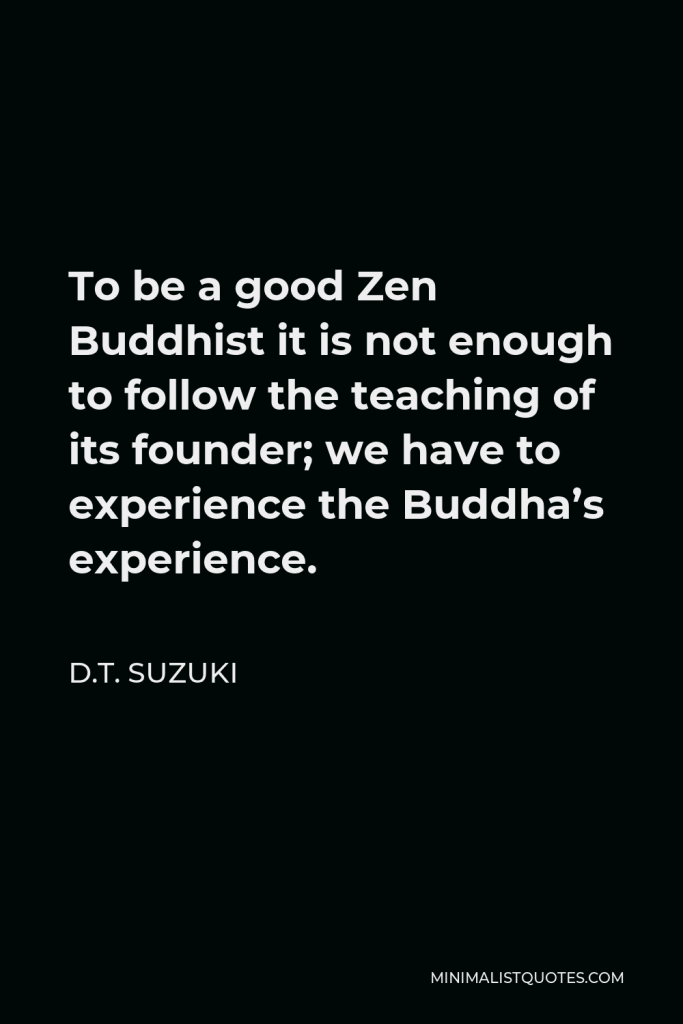

To be a good Zen Buddhist it is not enough to follow the teaching of its founder; we have to experience the Buddha’s experience.
D.T. SUZUKI -





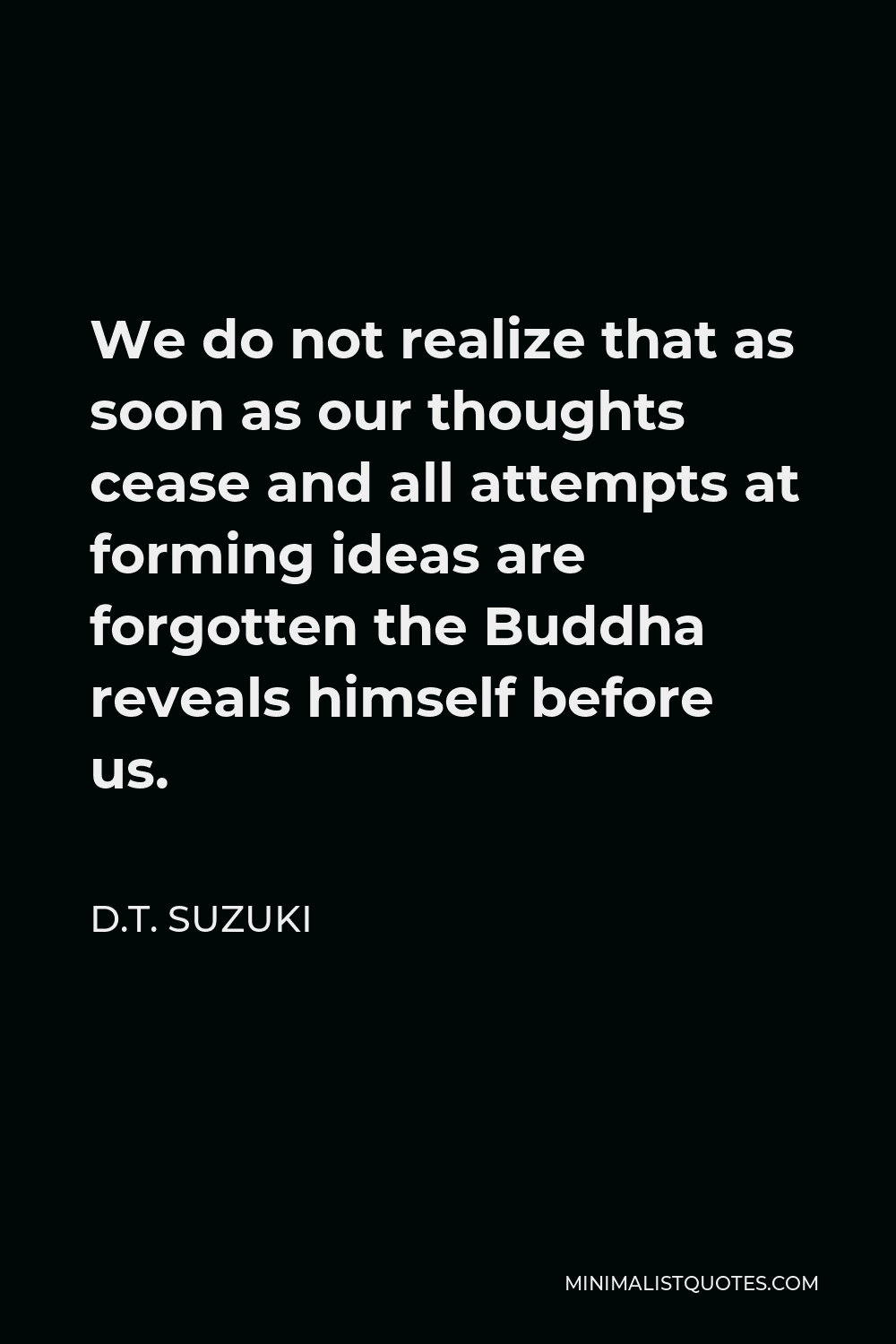
We do not realize that as soon as our thoughts cease and all attempts at forming ideas are forgotten the Buddha reveals himself before us.
D.T. SUZUKI -






I raise my hand; I take a book from the other side of this desk; I hear the boys playing ball outside my window; I see the clouds blown away beyond the neighboring woods:-in all these I am practicing Zen, I am living Zen. No worldly discussion is necessary, or any explanation.
D.T. SUZUKI -





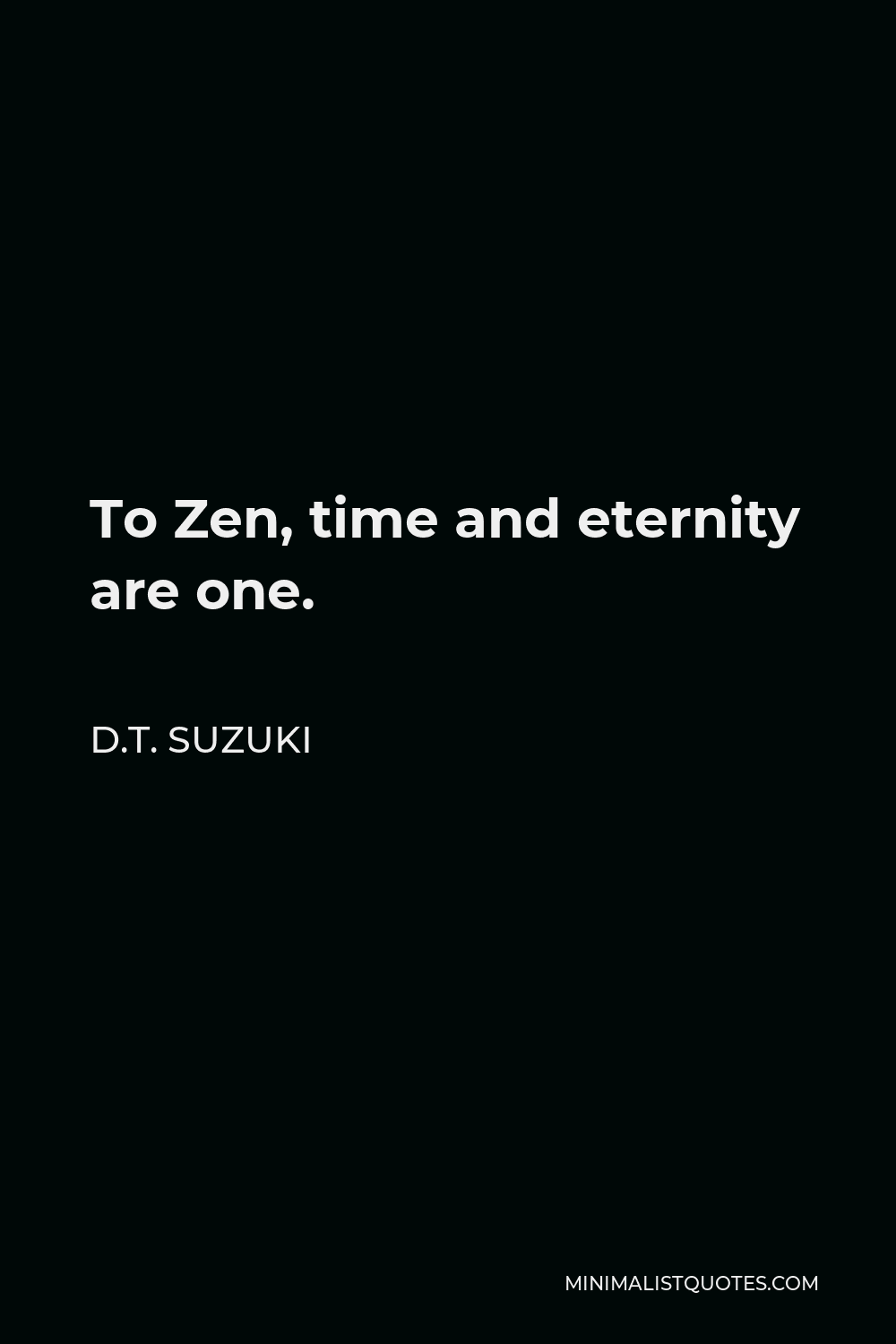
To Zen, time and eternity are one.
D.T. SUZUKI -







The fighter is to be always single-minded with one object in view: to fight, looking neither backward nor sidewise. To go straight forward in order to crush the enemy is all that is necessary for him.
D.T. SUZUKI -







The more you suffer the deeper grows your character, and with the deepening of your character you read the more penetratingly into the secrets of life.
D.T. SUZUKI -







When the identity is realized, I as swordsman see no opponent confronting me and threatening to strike me.
D.T. SUZUKI -





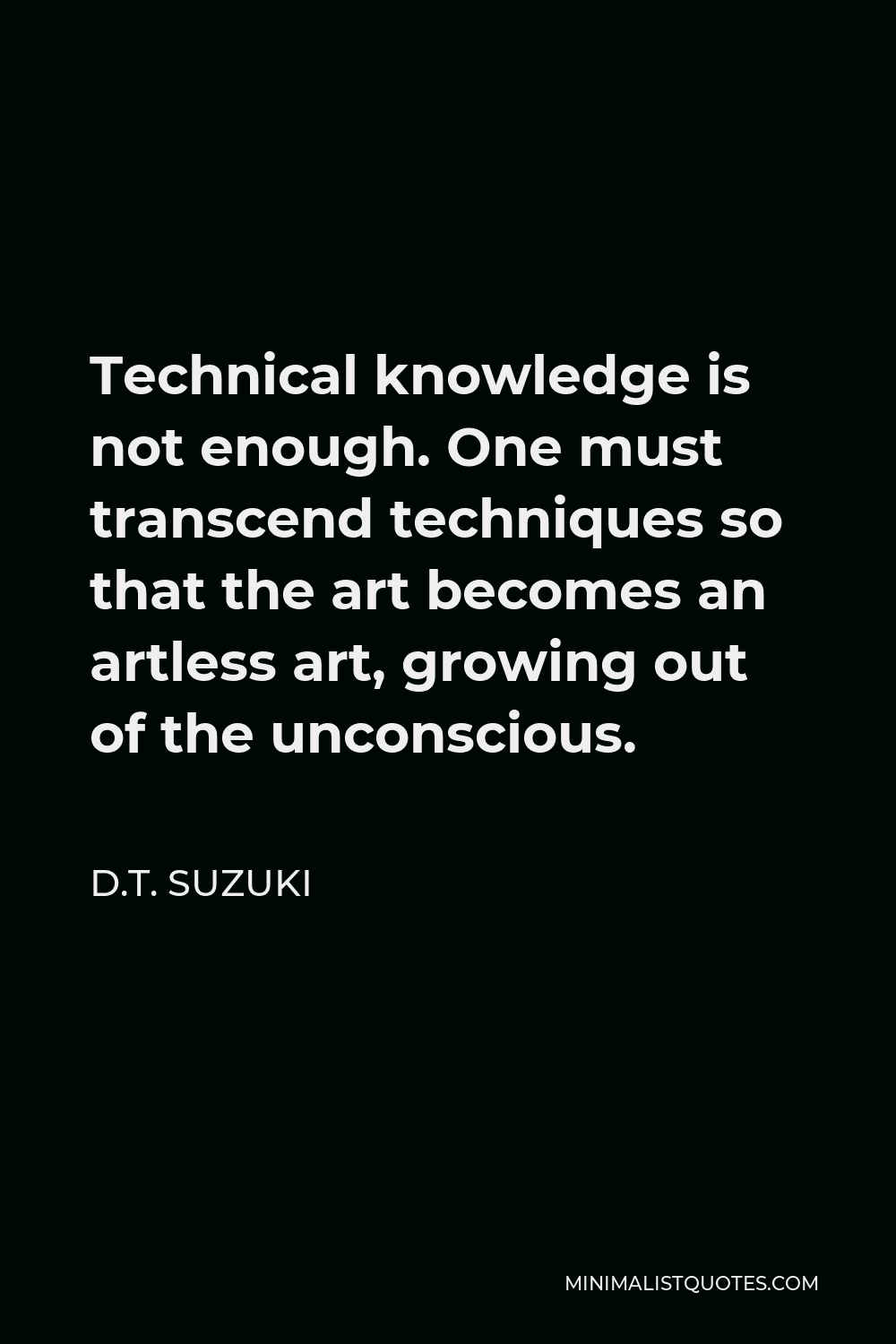
Technical knowledge is not enough. One must transcend techniques so that the art becomes an artless art, growing out of the unconscious.
D.T. SUZUKI -





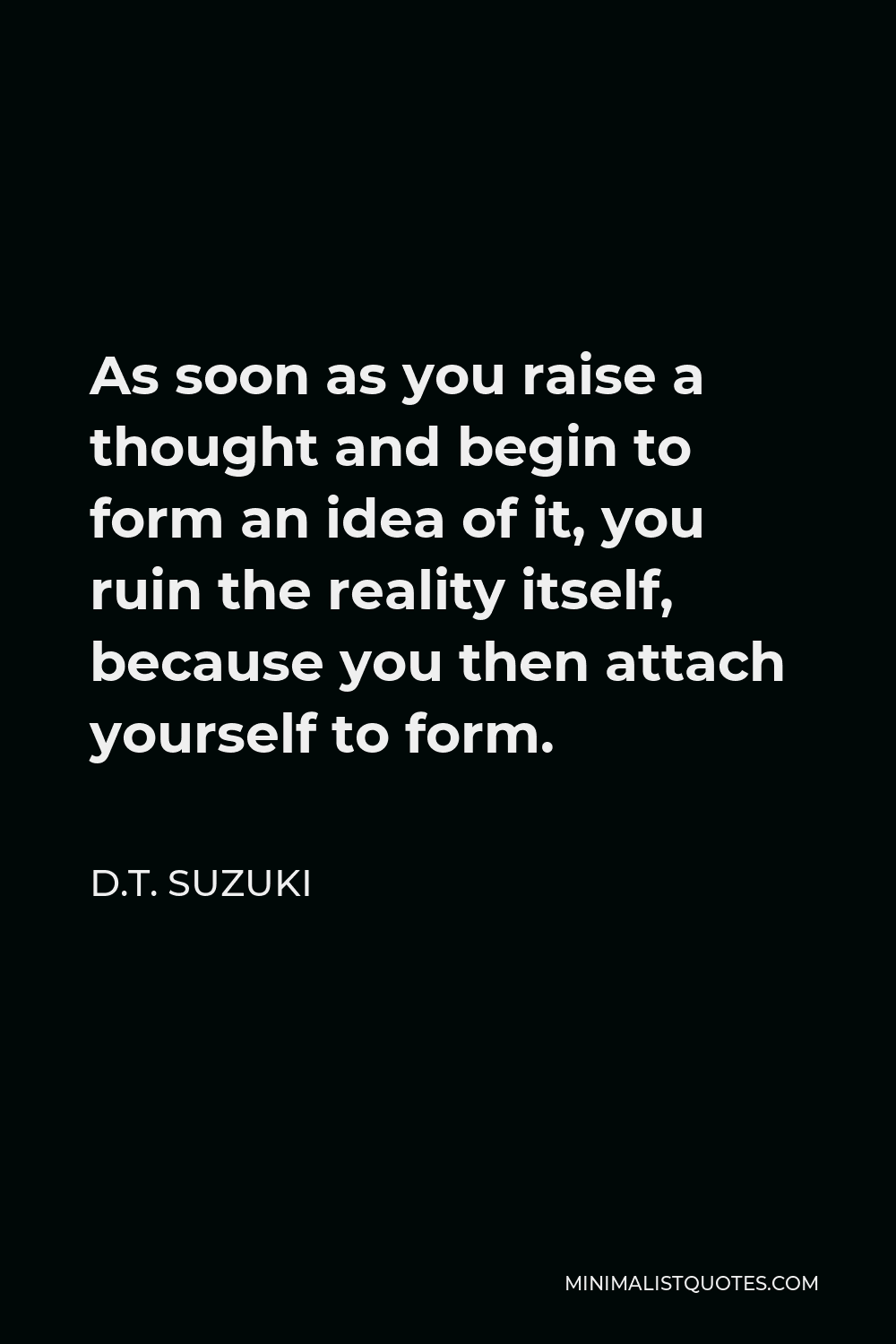
As soon as you raise a thought and begin to form an idea of it, you ruin the reality itself, because you then attach yourself to form.
D.T. SUZUKI -





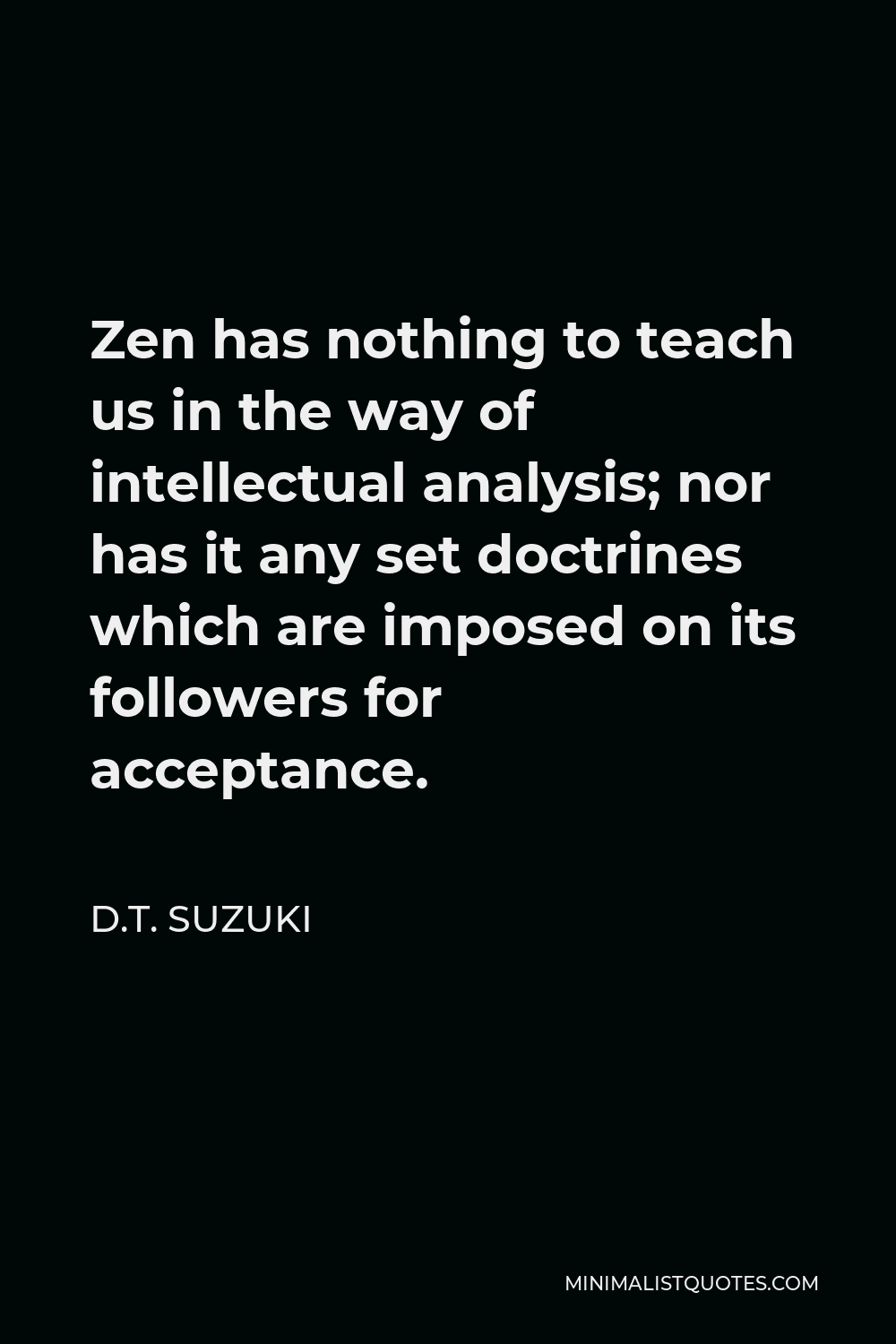
Zen has nothing to teach us in the way of intellectual analysis; nor has it any set doctrines which are imposed on its followers for acceptance.
D.T. SUZUKI -






That’s why I love philosophy: no one wins.
D.T. SUZUKI -






Eternity is the Absolute present.
D.T. SUZUKI






